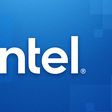 In recognition of Eddy Cue's promotion to Senior Vice President of Internet Software and Services, Apple has awarded Cue 100,000 restricted stock units with half vesting in 2013 and the other half in 2015, pending continued employment through the vesting dates.
In recognition of Eddy Cue's promotion to Senior Vice President of Internet Software and Services, Apple has awarded Cue 100,000 restricted stock units with half vesting in 2013 and the other half in 2015, pending continued employment through the vesting dates.
This stock is worth $37.4 million at current prices.
A restricted stock unit, or RSU, is a form of compensation valued in terms of company stock, but the stock is not issued at the time of the grant. It instead vests at a later date pending continued employment with the company.
Additionally, as a new officer in a publicly traded corporation, Cue has submitted an SEC Form 3 or "Initial Statement of Beneficial Ownership of Securities" with the SEC. This document shows what stocks and options Cue holds as a senior vice president of Apple, Inc. Cue received 76,250 RSU's over the past four years, presumably as part of his yearly bonus.
Last month, Apple awarded new CEO Tim Cook 1,000,000 RSU's as part of his retention bonus to stay through 2021.


























Top Rated Comments
So you think Apple should have a stock price that reflects a PE ratio of 100!?
In that case, the stock price would be $2,526.00 as of their EPS today at 17h12 (GMT -1h).
Moreover, by issuing more stock, their earnings per share would actually go down which would make their PE ratio go up. So which one do you want?
Also, Amazon and Apple aren't exactly in the same industry, so you shouldn't be comparing their P/Es anyway. But what's hard is comparing them to any company, because they have no direct competitors on all fronts, you know? But let's look at some simply comparisons in the way of P/E:
HP: 5.72
Dell: 7.63
Microsoft: 9.55
RIM: 4.81
Nokia: 13.27
Again, it's kind of hard to say where Apple should fall in this category, but even if you include Google in your stats (P/E 18.93), it's no where near 100 P/E. Apple is in a relatively mature industry - low P/Es are expected in mature industries. I think their P/E is right around where it needs to be.
Basically...I guess I wouldn't buy Amazon. I mean, surely you can look at those numbers and see how crazy that is: Amazon's share price is $210.00, yet they're only earning $2.27 on each share? I know they're supposed to come out with a tablet and have proven their business model, but my god...that just seems insane.
I will agree with you on one thing: stock buybacks are good for pretty much everyone, especially when you can do so with cash (unless your company is small and you need to issue debt for protection of being taken over, in which case that can advantageous...but that's another story). But at this point...Apple's such a solid stock, they can do whatever the Hell they want.
You mean besides their pay check? And any bonuses given annually?
please pick me..please...
Scarcity alone never drives up the price of anything. As a matter of fact, owning the only telephone in the world makes it valueless.
The rational price of a stock is calculated by dividing the value of the company by the number of shares outstanding. When a company buys back its own shares, it takes money out of the bank, reducing its assets, and consequently the company's value. When it receives shares in return, it reduces the number of shares outstanding. If nothing else changes, the lowered value of the company divided by the lowered number of outstanding shares will result in the exact same price per share.
The advantage of buying back shares arises when following the buyback the company's value increases. That increased value will be shared by fewer shareholders, resulting in a greater increase in the share price. Of course, if the company becomes less valuable, the loss in value will be spread over fewer shares, resulting in a greater loss in price per share than would have resulted in the absence of the buyback.
If the board believes that earnings will increase, and fully discloses the reasons for its optimism, it is appropriate to buy back stock from those shareholders who are unpersuaded and, if their optimism turns out to be justified, then those who refused the buyback offer will be rewarded.
Buying back shares to award them to employees is silly. If the share bonus successfully motivates employees to create more shareholder value, then the "dilution" from issuing shares to them should be at least offset by the increased value they have created. If they haven't created enough shareholder value to "pay for" the shares they receive, then they haven't earned the bonus shares.
Unless a company is constrained by insufficient authorized shares, there is no reason to buy back shares to deliver them to employees.